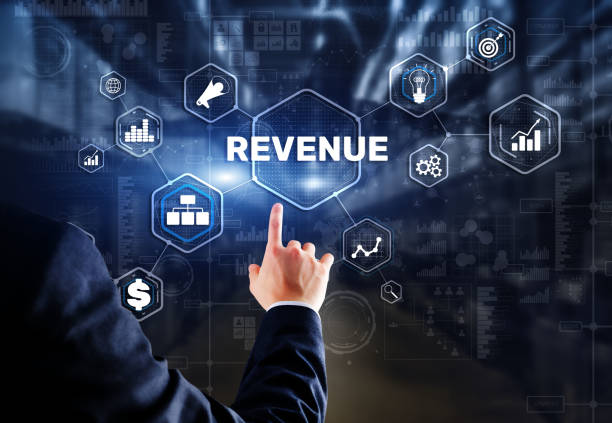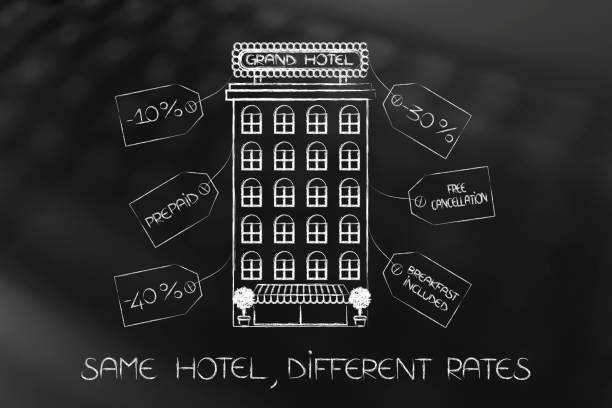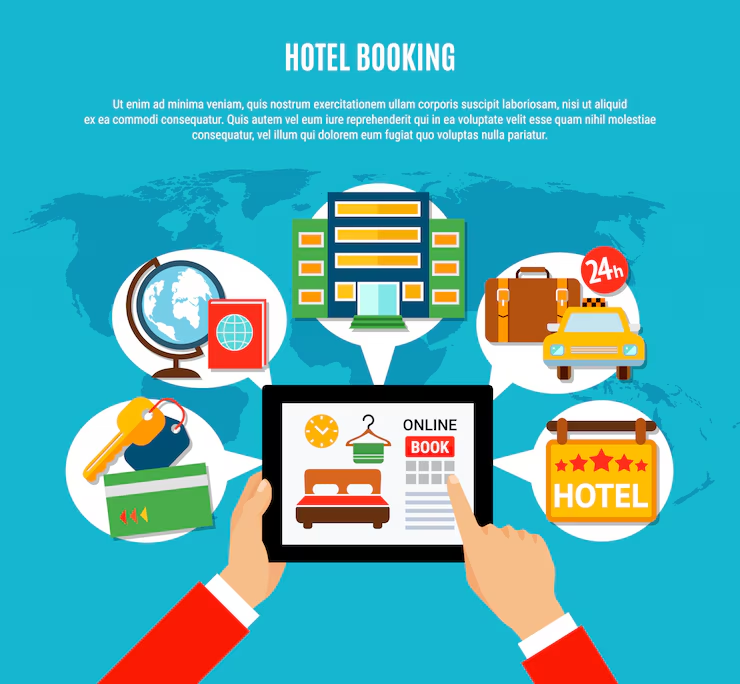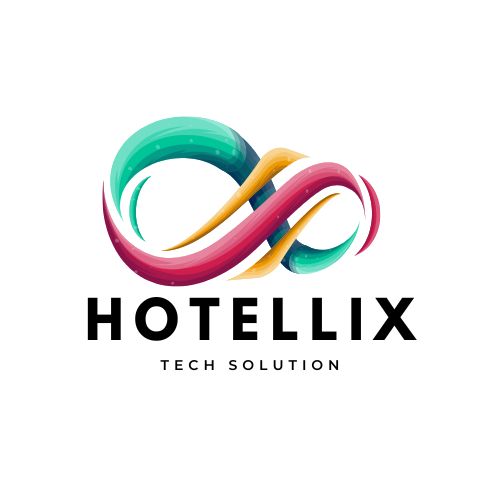Maximizing Hotel Profits Through Smart Techniques: The Complete Guide to Revenue Management
|

Maximizing Hotel Profits Through Smart Techniques: The Complete Guide to Revenue Management
In today’s competitive and constantly changing hospitality industry, managing a hotel that is successful requires more than simply great service and great rooms. In order to be successful, hotel operators must practice revenue management – the strategic art of successfully selling the right room to the right guest for the right price, at the right time, through the right channel in order to maximize profits.
Regardless if you are managing a boutique hotel, a luxury resort, or a hotel chain, your revenue management skills may determine if your business stands still or continues to grow. In this comprehensive guide, we will discuss the meaning of revenue management in the hotel industry, its importance, and how to practice it successfully to grow your business.
What Is Revenue Management in Hospitality?
Revenue Management (RM) refers to the ability to foresee guest behavior and utilize data to manage rates and availability. This includes the analysis of past booking patterns, forecasting future trends, identifying market seasonality and observing competitors’ rates to aid in making well-informed decisions that maximize Revenue Per Available Room (RevPAR). RM originated in the airline industry, but quickly became an important operational function for hotels and hospitality companies around the world. As a hotel room is perishable (once a night is over, the unsold room cannot be captured again), the goal of Revenue Management is to ensure hotels get the maximum revenue for every room available in the market, every night.
This is where Hotellix comes into play. Hotellix is a revenue management software or platform that provides hotel operators with smart tools to help automate pricing strategies, predict market demand, and use data to improve profitability across all distribution channels. By embedding a smart solution like Hotellix into your revenue management strategy, you can remove uncertainty from pricing and make informed, confident decisions to maintain a competitive edge while optimizing rates to improve profit performance.
Core Principles of Hotel Revenue Management
1. Customer Segmentation
Hotels always have a variety of guest stays: corporate travelers, pleasure travelers, groups, attendees of events, weekend stays, and last-minute staycationers. Each of these types of guests represent different booking tendencies and price sensitivities. Segmentation allows hotel operators to differentiate rates and packages for each segment.
2. Demand Forecasting
Demand forecasting is estimating future room demand based on past booking data. Historical booking data helps to identify demand-side influences such as holidays, events, and weather, that impact booking patterns and influences different distributions of inventory. Good demand forecasts will allow hotel operators the capability to develop pricing, effort for staff, and distribution of inventory.
3. Dynamic Pricing
Rates for rooms should change dynamically with real-time demand levels. For example if there is a music festival in town, room prices ideally will reflect the increase in demand levels, equally with discounts in low season (and mid-week) to encourage occupancy.
4. Inventory Management
Rooms are a limited resource, if you sell too many rooms in the early stages of rate setting at a below market value, you can lose high paying booking opportunities. Balancing room types, stay restrictions, minimum stay restrictions are important to manage high value bookings.
5. Channel Management
Guests book via many channels direct websites, OTAs (e.g., Booking.com), GDS, travel agents. Each one of those channels comes with its unique cost and audience/margins. Revenue management is about balancing the channels appropriately to maximize overall profit, while maintaining rate parity.

Why Hotel Needs Revenue Management
1. Increased Profitability
RM allows hotels to earn more without adding costs – smart pricing particularly in peak demand times, can often drive additional revenue. For example, a hotel can lose hundreds of dollars if you get the pricing of hundreds of dollars right during a city wide convention, just by simply putting a must attend seminar into the hotel’s pricing strategy in Denver.
2. Efficient Resources
A key benefit to hotels is knowing how much they need to plan for how much occupancy they expect by number of employees (housekeeping, revenue managers as well as staffing as needed (serving the guests), F & B Managers purchasing for the hotel, etc. trust me this one will save you money while providing poor guest service, it’s also you decreasing your overall cost of service to the guests.
3. Higher Satisfaction
If guests are treated personally (with offers), prices are fair prices, and mindsets and attitudes of staff are positive (believe me in ultra high competition hotel businesses), the guest perceptions sort-of have a tendency to increase their satisfaction. Happy guests generally rebook directly especially if they’ve received such a good offer from the hotel they are happy with, send positive messages more than often; discounts that are “flashing signs” in category pricing systems, generate far more good bookings than exceptional circumstances that are put into the hotel’s pricing strategy.
4. Competitive Advantage
Hotels that are RM (Revenue Management) will keep ahead of others in the competition … they will quickly adjust and eliminate being stuck in market demand and navigate competition pricing as well as trends from others that hotels are paying attention to as they occur.
Fundamental Revenue Management Practices In Hotels:
1. Dynamic Rate Management
Dynamic pricing (or rate management) means that your base rate can fluctuate up to several times daily. With the use of automated rate intelligence tools, hotels can raise or lower their rates based on occupancy trends, competitors’ rates, or booking pace.
2. Overbooking
Hotels tend to take more reservations than rooms knowing some guests are canceling or that guests will no-show. This allows hotels to maintain good occupancy, even during low demand and naturally, if not managed carefully, too many overbookings can lead to walk-aways and damage to reputation.
3. Rate Fencing
More and more hotels are offering different rate plans with varying conditions – non-refundable, early booking discount, flexible cancellation – which helps to encourage guests to self-segrate who pick the rate that best fits their needs.
4. Length of Stay (LOS) Restrictions
Hotels can implement certain minimum or maximum length of stay rules to stuck gaps in their occupancy calendar (ex. If there is high demand for dates, hotels may put a standard in there to not let there be one night stays).
5. Package Bundling
Hotels by bundling rooms with breakfast, spa, airport transfer (shuttle) or a city tour to create a product that may not have a higher price (added value) but allows the hotel to generate a higher rate (justified) for the additional products purchased. Also, these packages are appealing to leisure travelers and the hotels need to differentiate themselves.

Hotel Revenue Management Tools & Technologies
Revenue Management is not based on whims; it is based on data and supported by technology. Below are some of the tools that hotel RM takes advantage of:
- Revenue management system (RMS): Systems such as IDeaS, Duetto, and Atomize utilize AI to recommend pricing solutions and forecasting.
- Channel manager Systems: Allow for the distribution of rates and availability in real-time to OTAs, GDS, or direct booking channels.
- Integrating PMS and CRS Systems: Where all of your booking sources sync into one central booking inventory.
- Business Intelligence Systems: While dashboards such as Tableau and Power BI, support visualizing performance metrics and booking trends.
- Rate shoppers: Systems such as OTA Insight or RateGain monitor competitor pricing to keep your rates in the competitive range.
⚠️ Common Challenges in Hotel Revenue Management
1. Data that is not reliable
Poor data hygiene and being clean with systems can lead to faults in forecasts and pricing indicators. You can only use the data, and while the system may update data in real-time (for example, LinkedIn), it needs to be clean data.
2. Dependence on OTAs
Dependence on third-party channels are detrimental to the bottom line due to high commissions- try to inspire customers to book direct through loyalty offers or direct offers
3. Rate disparity
Inconsistency in rates across channels can lead to guest confusion and damage consumer trust in branded property.
4. Market volatility
Market events that are incomparable, for example, pandemic, weather, or local political issues, can invalidate even the strongest forecasting.
5. Staff Training
Revenue strategies are only successful if the front desk, sales, marketing, and reservations teams understand and support them.

✅ Hotel Revenue Management Best Practices
-
Set Revenue Goals: Define your KPIs – RevPAR, ADR and occupancy targets.
-
Develop a Revenue Calendar: Mark all events, holidays, and other local demand drivers on your calendar so you can prepare pricing plans earlier.
-
Daily Pickup Monitoring: Verify how many bookings are coming in for your future dates to know what strategies are working.
-
Drive Direct Bookings: Get people to book directly with promo codes, loyalty rewards perks, and longer/cemented cancellation terms.
-
Regularly Check Your Competitor Sets: Always benchmark your pricing and performance vs similar hotels in your area.
-
Test and Learn: Keep experimenting with new packages, discounts, and pricing rules. Things that work in the summer may not work in the winter.
🚀 Future Developments in Hotel Revenue Management
🔍 AI-Powered Personalization
AI Supports hotels in personalizing pricing adjustments, pricing promotions, and room assignments to their guest profiles and past history of stay patterns.
🌐 Total Revenue Management
Revenue Management is no longer only for rooms. Spa, F&B, events, and ancillary services will all merge into a unified revenue strategy.
💬 Voice and Chat Bookings
With voice search and AI chatbots emerging quickly, direct booking channels will be more conversational and subconscious.
🌱 Sustainable Profit Models
Eco-conscious travelers are on the rise. Hotels that incorporate sustainability into their RM strategies—like promoting green room packages—will gain a competitive edge.
🧾 Conclusion
In the hotel business, rooms are perishable and time-sensitive. Once a night passes, unsold rooms represent lost revenue forever. This is why Revenue Management is not optional—it’s essential. By understanding demand, forecasting accurately, and pricing intelligently, hotels can boost profits, delight guests, and outperform competitors.
Whether you’re just starting out or looking to level up your revenue strategy, now is the time to invest in the tools, training, and mindset needed to master revenue management.
